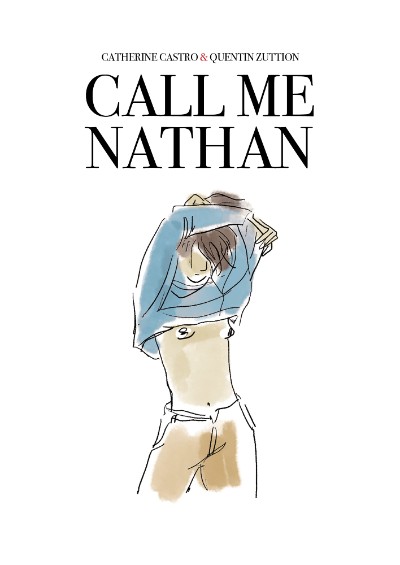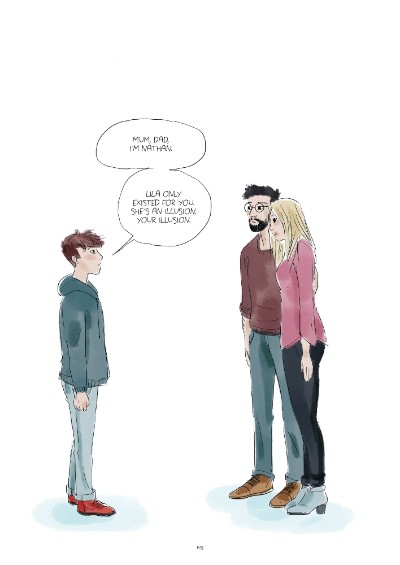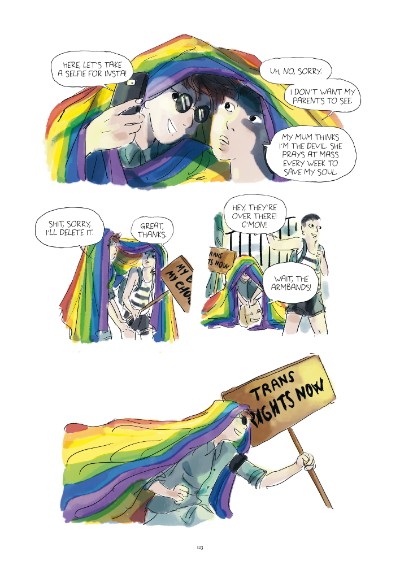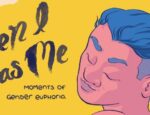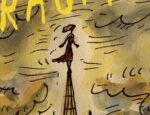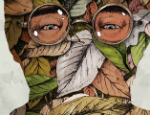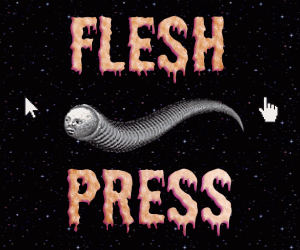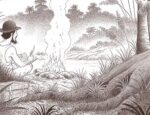Unlike many of the books we have covered here at Broken Frontier that deal with the trans experience Call Me Nathan is a semi-fictionalised account of that journey rather than a direct autobiographical one. However, this graphic novel (written by Catherine Castro and illustrated by Quentin Zuttion) is inspired by the life of “Lucas”, a family friend of Castro’s whose story she wanted to bring to the page in consultation with both him and his parents. Before I begin discussing this powerful new release from SelfMadeHero, though, a quick note of explanation. For the purposes of linear clarity, and to avoid confusion in documenting the central character’s development, I will in this review be using both of his names Lila and Nathan (sometimes both) depending on what stage of Nathan’s journey is being recounted.
Call Me Nathan, then, is the story of a teenage character originally named Lila who has never felt comfortable in the gender roles assigned him from birth and, as puberty hits, begins to reject the girlhood others are expecting of him. Confusion and feelings of dysphoria manifest in anger and a sense of rebellion while Lila’s period evokes feelings of disgust, not helped by a mother whose attempts at reassuring words – “You’re becoming a woman now” – are the last thing Lila needs to hear. As Lila begins to transition into Nathan the titular plea “Call Me Nathan” becomes something of a refrain throughout the book, eventually culminating in a quietly powerful one-panel page where Nathan imploringly pleads “Mum, Dad, I’m Nathan. Lila only existed for you. She’s an illusion, your illusion.”
Castro mostly casts the reader in the role of observer, only occasionally bringing us directly into Nathan’s mind. In this regard Zuttion’s visual characterisation is essential in communicating the subtleties and nuances of the protagonist’s emotional interactions with the world. This is often facilitated by expressive body language in the more conventional scenes but Zuitton also has a strong line in dreamlike metaphor – Lila feeling overwhelmed by a sea of imagined breasts after an awkward moment in the school changing rooms in an earlier scene, for example, or profound discomfort at living in the wrong body leading to daydreams of graphically extreme solutions.
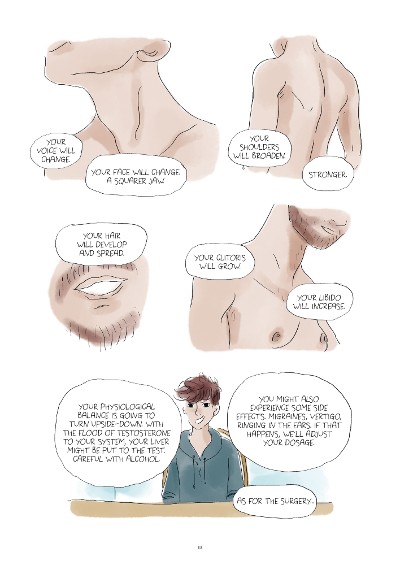
When we first hear the direct thoughts of a character it comes from Nathan’s mother, giving a different perspective on supporting a trans child. One key scene when Nathan is having a consultation about gender reassignment procedures gives us a pivotal dual perspective of his delight and his mother’s concern about how serious the surgery may be. We also see Nathan’s father defending this transition to his ignorant friends while coming to terms with what he nevertheless perceives as a major change in the family dynamic. This is further explored in the prejudice and transphobia that Nathan’s younger brother Theo encounters.
Call Me Nathan is another fine addition to the growing comics library of comics stories about the trans experience. Uncompromising, honest and realistic about the struggles than young trans people face it’s nonetheless also a joyous book; one that may on an immediate level be about finding one’s true self but is as much about allowing others to see and discover it too.
Catherine Castro (W), Quentin Zuttion (A), Evan McGorray (T) • SelfMadeHero, £14.99
Review by Andy Oliver





